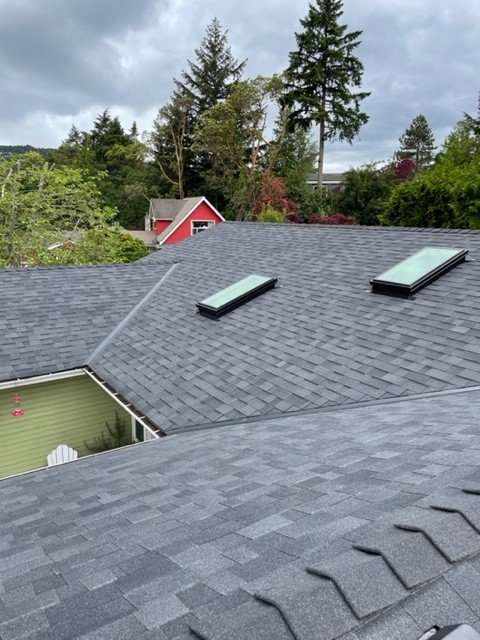High humidity can cause a range of problems for your roof. These problems may range from the growth of harmful mold and mildew to the deterioration of the roof itself. In this article, we’ll explore how high humidity can damage your roof and what you can do to prevent these issues from occurring. Whether a homeowner or a business owner, it’s important to understand the potential risks that it can pose to your roof and take steps to address them.
What Is Humidity?
Humidity is the amount of water vapor in the air. You can refer to the paragraph below for further clarification.
Water vapor is the invisible gas that makes up water. The more water vapor in the air, the higher the humidity. When the air has a lot of water vapor, it can feel sticky and uncomfortable. This is mostly true when it’s also very hot outside.
What Causes High Humidity?
Several factors can contribute to high humidity outdoors. One common cause is warm temperatures. Warm air can hold more water vapor than cold air, so when the weather is hot and humid, it’s because it holds a lot of water vapor.
Another factor contributing to high humidity is the presence of water bodies, such as lakes, oceans, or swamps. These bodies of water release water vapor into the air, increasing the humidity.
In addition, the presence of vegetation can also cause high humidity. Vegetations such as plants usually release moisture into the air through transpiration. When this moisture fills the air in large amounts, the humidity becomes dense.
Finally, high humidity also occurs due to the influence of atmospheric conditions, such as the formation of clouds or precipitation.
How High Humidity Can Negatively Affect Your Roof
High humidity can have many negative effects on your roof. Here are some of the ways in which it can damage your roof:
1. Mold and mildew growth:
High humidity can create the perfect conditions for mold growth and mildew on your roof. These organisms can cause damage to the roof surface and create a health hazard for those living or working in the building.
For instance, if a building contains people sensitive to mold, they may begin to suffer from severe allergic reactions when exposed to the spores through inhalation or contact.
They will begin to notice reactions like sneezing, red eyes, skin rashes, and runny noses. In severe cases, some may even find it difficult to breathe.
2. Deterioration of roofing materials:
High humidity can also cause the roofing materials to break down and deteriorate. For example, wood shingles can become soft and prone to rot, while metal roofs can rust and corrode.
3. Damage to the structure of the roof:
In extreme cases, high humidity can weaken the structure of the roof. Consequently, the roof is more prone to damage from storms or other external factors.
4. Increased energy costs:
High humidity can also lead to increased energy costs, making your home or building harder to cool. The reason for this is that humid air feels warmer than dry air. As a result, you may need to run your air conditioning more frequently to maintain a comfortable temperature.
Overall, it’s important to address it to prevent these issues from occurring. Properly addressing the issues will help you better protect the integrity of your roof.
How You Can Prevent the Issues High Humidity Cause on Your Roof
There are several steps you can take to prevent the negative effects of high humidity on your roof:
· Keep your roof in good repair:
Make sure to regularly inspect and maintain your roof to ensure it is in good condition. This can help prevent leaks and other issues that can lead to the growth of mold and mildew.
· Improve ventilation:
Proper ventilation is key to preventing high humidity on your roof. Ensure to properly ventilate your attic and other areas to allow excess moisture to escape.
· Use a dehumidifier:
If you are experiencing high humidity in your home, consider using a dehumidifier to remove excess moisture from the air.
· Quickly fix leaks:
If you notice any leaks in your roof, ensure to repair them as soon as possible. Leaks can lead to moisture buildup, which can lead to mold and mildew growth.
· Keep your gutters clean:
Make sure to clean your gutters to drain water as they should regularly. When you have clogged gutters, it can cause water to pool on your roof. Consequently, this often leads to the growth of mold and mildew.
You should be able to prevent the negative effects of high humidity on your roof when you follow the above steps.
Conclusion
If you need help with how to handle the high humidity around your roof, a roofing contractor can help. They can help you work out the best type of roofing ventilation system for your home by considering the climate around your home’s location. They will also consider some other things like the design of your home.
Shoreline Roofing has the best set of professionals that can help you identify and fix the problems high humidity tend to cause on roofs. Call us at (250) 413-7967 or fill out our contact form to schedule service.
We’ll be happy to help you with your roofing needs.

